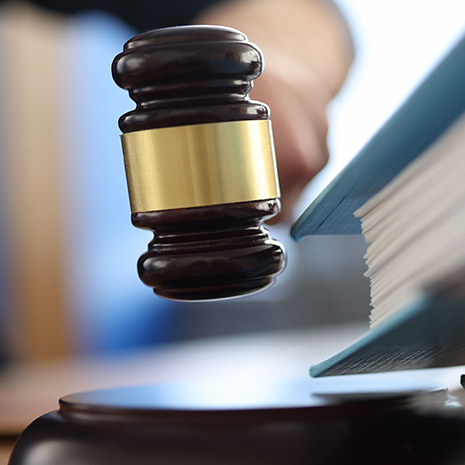Why Pick Federal Appeal Lawyers: Proven Techniques for Successful Appeals
Why Pick Federal Appeal Lawyers: Proven Techniques for Successful Appeals
Blog Article
Debunking the Refine of Federal Appeals: What You Required to Know
Navigating the intricate realm of federal charms can usually feel like traversing uncharted waters for those not familiar with the process. Comprehending the nuances of appellate court jurisdiction, the intricacies of filing a notice of appeal, providing a compelling short, and making a convincing oral disagreement are important elements that can substantially affect the result of a case. By deciphering the layers of complexity surrounding federal appeals, individuals can gain a more clear understanding right into the systems that regulate this critical point of the legal system.
Comprehending Federal Appeals Process
Delving into the intricate world of the government charms process unveils a organized and systematic trip through the judicial system. Federal appeals function as a critical system for examining decisions made by reduced courts. Recognizing this process is important for anyone associated with lawful proceedings at the government degree.
The process generally starts with a celebration dissatisfied with a reduced court's ruling filing a notification of appeal. This triggers a testimonial by a higher court, where a panel of judges examines the legal disagreements presented by both events. Briefs describing the lawful thinking behind each party's placement are submitted, and dental arguments might be heard to clear up complicated issues.
The appellate court's choice is based on a thorough exam of the reduced court's procedures and the disagreements presented. Once the appellate court gets to a choice, it can affirm, reverse, remand, or change the reduced court's ruling, offering clarity and finality to the lawful conflict.
Appellate Court Jurisdiction Explained
Appellate court jurisdiction refers to the extent of situations that a certain appellate court has the power to make a decision and evaluate upon. Unlike test courts that hear instances for the first time, appellate courts are restricted to reviewing decisions made by reduced courts.
Appellate courts have jurisdiction over certain sorts of situations, typically those including lawful errors, procedural concerns, or questions of legislation instead than factual conflicts. The territory of appellate courts is typically detailed in laws and laws that regulate the court system. Recognizing appellate court jurisdiction is important for events involved in the charms process as it identifies whether an instance is qualified for testimonial and the extent to which the appellate court can interfere in the reduced court's decision.
Declaring a Notification of Appeal
The preliminary action in starting the government allures process involves filing a Notice of Charm with the proper appellate court. This critical document formally notifies the court and the various other events entailed in the case that the appealing party intends to seek a review of the lower court's decision. Filing a Notice of Appeal is a strict procedural requirement that establishes the appellate procedure in movement.
When preparing the Notification of Appeal, it is necessary to make certain conformity with the details regulations and standards of the appropriate appellate court. federal crime attorney. The record has to commonly consist of info such as the instance name, the lower court's name, the day of the judgment being appealed, and a concise statement indicating the grounds for the appeal

Rundown and Dental Debate
In the appellate procedure, presenting composed briefs and engaging in dental disagreements play pivotal roles in supporting for the appealing event's setting before the appellate court. Briefs are detailed legal papers that detail the parties' disagreements, lawful authorities, and analysis supporting their placements. These created submissions supply the court with a detailed understanding of the facts of the instance, the appropriate legislation, and why the appealing event thinks the reduced court's choice ought to be reversed.
Following the submission and testimonial of the briefs, dental debates supply the events a chance to more clarify their placements, address any kind of questions the appellate courts might have, and highlight crucial points from their created briefs. Dental disagreements are a possibility for the attorneys to encourage the courts through verbal advocacy and actions to questions from the bench.
Both the written briefs and dental arguments are essential elements of the appellate procedure, permitting events to provide their case thoroughly and compellingly before the appellate court. - federal appeal attorneys
Getting the Appellate Court Decision
Upon completion of dental arguments and submission of created briefs, the next critical phase in the appellate procedure involves waiting for the decisive ruling from the appellate court. This period of anticipation can be loaded with a mix of anxiety and expect celebrations entailed in the appeal. The appellate court's decision is typically provided in a composed format and describes the court's final thoughts on the legal concerns presented, the thinking behind their decision, and the judgment made. The time framework for obtaining the appellate court's choice can differ, but courts aim to give timely resolutions. Once the choice is provided, celebrations should meticulously review the court's ruling to recognize the result and identify any kind of additional steps that may be necessary. Whether the appellate court attests, reverses, or remands the lower court's decision, understanding the ramifications of the judgment is critical for all celebrations entailed in the appellate process. Quickly evaluating and understanding the appellate court's choice is crucial in navigating the next actions in the legal process.
Final Thought
Finally, the government allures procedure is a complicated but critical step in looking for justice. Understanding the appellate court jurisdiction, filing a notification of charm, preparing briefs, and offering oral arguments are all nevada federal crime appeal attorney vital elements of this process. Inevitably, receiving the appellate court choice can supply quality and resolution to lawful disagreements. It is necessary to browse the government charms process with diligence and focus to detail to accomplish a reasonable outcome.
As we advance from comprehending the government allures process to dissecting the ins and outs of appellate court territory, a basic facet comes to light pertaining to the authority and restrictions of these greater courts in the legal landscape. Appellate court territory refers to the range of cases that a specific appellate court has the power to evaluate and make a decision upon. Unlike test courts that hear instances for the very first time, appellate courts are restricted to reviewing choices made by lower courts. Comprehending appellate court jurisdiction is important for events entailed in the appeals procedure as it figures out whether a case is qualified for evaluation and the extent to which the appellate court can intervene in the reduced court's choice.

Report this page